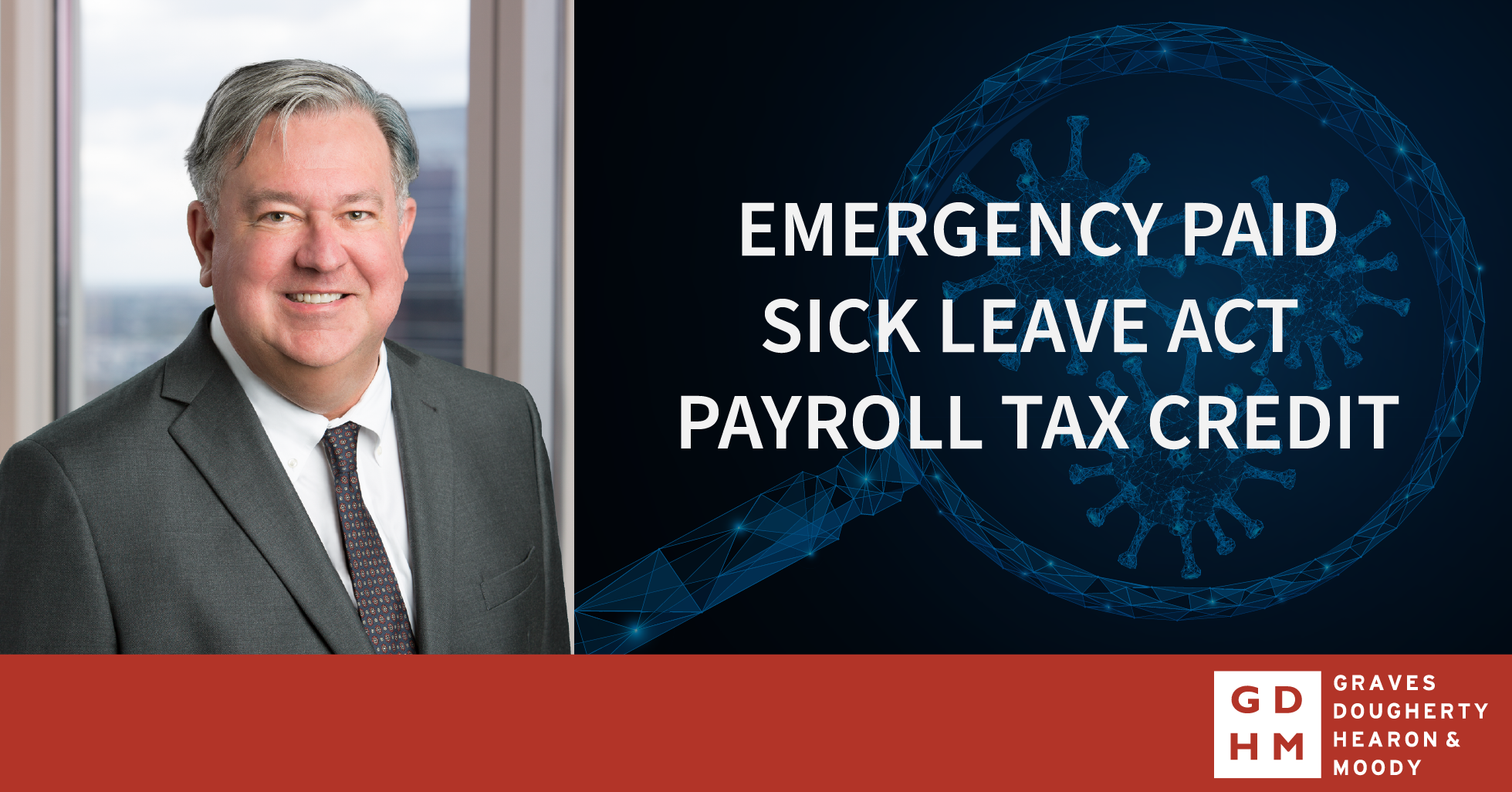
News, Insights & Events
Emergency Paid Sick Leave Act Provides Payroll Tax Credit for Required Paid Sick Leave
March 26, 2020
Graves Dougherty Hearon & Moody

The Emergency Paid Sick Leave Act (“EPSLA”) division of the Families First Coronavirus Response Act (the “Act”) provides a payroll tax credit for required paid sick leave. Generally, the credit works as follows:
- Paid Sick Time Credit: EPSLA generally requires private employers with fewer than 500 employees to provide 80 hours of paid sick time to employees who are unable to work for COVID-19-related reasons (with certain exceptions).
- Credit Amounts and Caps: The pay is up to the following:
(a) Up to $511 per day (with $5,110 overall cap) for an employee directly affected by the virus.
(b) Up to $200 per day (with $2,000 overall cap) for an employee who is a caregiver. - Application of Credit: The tax credit corresponding with the EPSLA mandate is a credit against the employer’s 6.2% portion of the Social Security (“OASDI”) payroll tax (or against the Railroad Retirement tax) and generally the credit amount generally tracks the $511/$5,110 and $200/$2,000 per-employee caps.
- Increases to Credit: The credit can be increased by:
(a) The amount of certain expenses in connection with a qualified health plan if the expenses are excluded from employee income and
(b) The employer’s share of the payroll Medicare hospital tax imposed on any payments required under the EPSLA. - Credit Amount Refunds: Credit amounts earned by an employer which are in excess of the employer’s 6.2% Social Security (OASDI) tax (or in excess of the Railroad Retirement tax) are refundable.
- Paid Sick Time Credit Electable: The credit is electable and includes provisions that prevent double tax benefits (for example, using the same wages to get the benefit of the credit and of the current law employer credit for paid family and medical leave).
- Paid Sick Time Credit Period: The credit applies to wages paid in the following period:
(a) Beginning on a date determined by IRS that is no later than April 2, 2020, and
(b) Ending on December 31, 2020.
IRS Information Site: Ongoing information on the IRS and tax legislation response to COVID- 19 can be found here.
Frank L. Leffingwell is a tax attorney in the firm’s Tax Planning & Controversy, Estate Planning, Probate & Trusts, and Real Estate sections.











